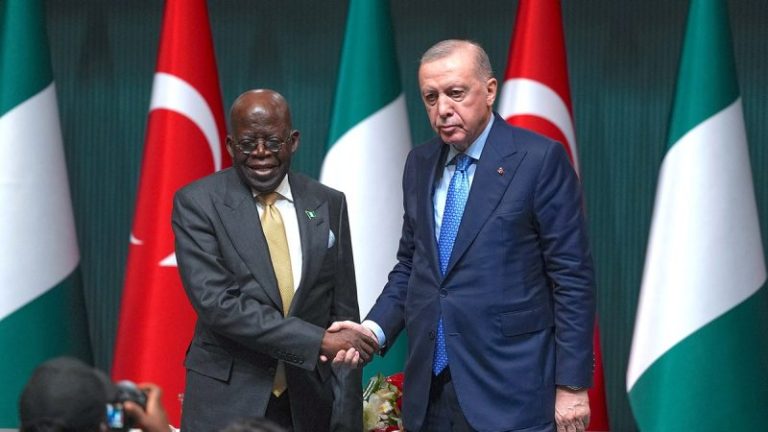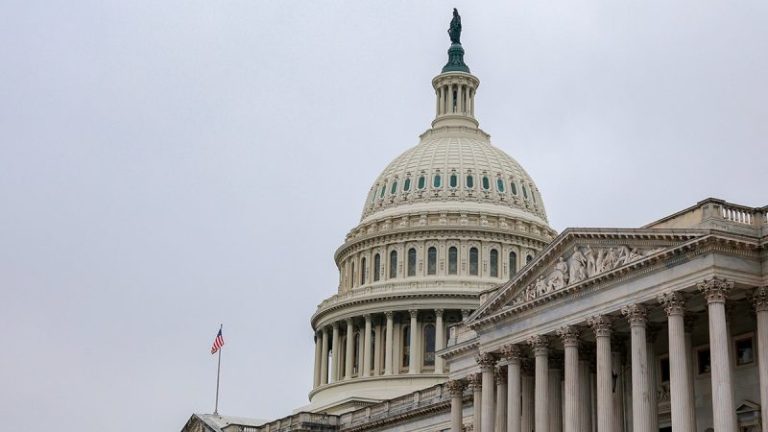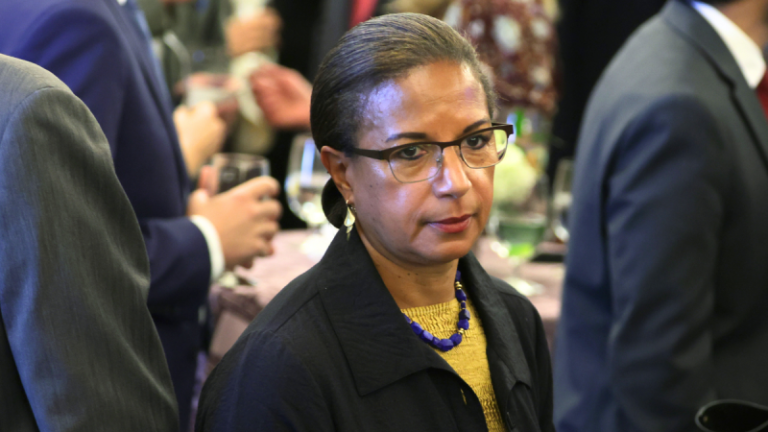Turkey’s massive military, trade, Islamic diplomacy and education expansion into Africa is, some analysts say, undermining U.S. goals, as Ankara capitalizes on wars and conflicts on the continent.
Experts claim Turkey’s military sales appear to be based on maximizing profit, without worrying about what the arms sold do to the balance of power, particularly in Jihadist areas such as the Sahel.
Recently, multiple reports claimed Turkish companies have sold military drones to both sides in the 3-year-long conflict in Sudan.
‘Turkey is really capitalizing on all these conflicts in Sudan, in Ethiopia, in Somalia, to strengthen its military presence, its diplomatic and economic engagements,’ Turkey analyst Gönül Tol, told an American Enterprise Institute seminar in Washington last week. Tol, founding director of the Middle East Institute’s Turkey program, added that the country is ‘one of the top, top weapons providers to Africa. So if there is more chaos, that will only help Erdogan strengthen his hands.’
President Recep Tayyip Erdogan, stated in October that overall trade volume with the African continent has shot up from $5.4 billion in 2003, to $41 billion in 2024. He told a business and economic forum in Istanbul that the state-backed carrier Turkish Airlines is literally leading the way into African countries for Turkish companies, now flying to 64 African destinations.
Erdogan told the forum that over the past two decades, ‘we have advanced our relations hand in hand, shoulder to shoulder, and most importantly, heart-to-heart, to a level that could not even be imagined.’
Drone sales to Sudan’s warring partners would only prolong the war, conduct which is directly against U.S. policy. Just last month, a State Department spokesperson told Fox News Digital that ‘the U.S. is working with allies and others to bring an end to external military support to the parties, which is fueling the violence.’
‘Turkish drones, marketed as cost-effective and politically low-friction alternatives to U.S. or European systems, have proliferated across African conflict zones,’ Mariam Wahba, research analyst at the Foundation for Defense of Democracies, told Fox News Digital.
‘Reporting that Turkish firms supplied drones to both the Sudanese (government) Armed Forces and the Rapid Support Forces (the opposing militia in the conflict) underscores Ankara’s transactional approach: access and influence take precedence over stability, civilian protection or alignment with Western policy objectives,’ she said.
In a 2025 FDD report, Sinan Siddi, senior fellow and director of the organization’s Turkey Program, wrote, ‘The deal between Baykar and SAF is worth $120 million, resulting in the sale of six TB2 drones, three ground control stations, and 600 warheads.’ Siddi claimed the deal took place after the U.S. placed sanctions on such sales.
Although Turkish drones are also claimed to have been sold to Sudan’s RSF militia, the company said to have been involved is reported to have publicly denied making the sale. The company did not respond to Fox News Digital’s request for comment.
A State Department spokesperson, when asked by Fox News Digital about the allegations said, ‘We refer you to the Government of Turkey for comment on reports related to any Turkish firms operating in Sudan.’
Fox News Digital reached out to the Turkish government but received no response.
The TB2 drone reportedly sold to the Sudanese government is made by a company said to be owned by Turkish President Recep Tayyip Erdogan’s son-in-law. Experts say the TB2 is one-sixth the cost of a U.S. Reaper drone. Fox News Digital reached out to the company, but received no response.
The U.S. Africa Command’s Africa Defense Forum recently reported it ‘typically costs between $2 million and $5 million per aircraft, though total system packages — including ground control stations, communication systems, and training — often cost significantly more, sometimes reaching $5–$15 million per system depending on the contract. The TB2 is recognized for its high cost-efficiency, with operational costs estimated at only a few hundred dollars per hour.’
Particularly in Africa’s Sahel region, the FDD’s Wahba claimed Turkey is trying to return to the principles of its Ottoman Empire, which ruled for centuries and promoted the culture of imposing caliphates – areas where Islamic law is strictly enforced.
Wahba said, ‘On the whole, this is a worrying development that risks undermining U.S. interests. In addition to backing Islamist movements such as Hamas and the Muslim Brotherhood, which does not bode well for its ideological orientation, Ankara is pursuing a neo-Ottoman foreign policy that is already taking concrete shape across parts of Africa.’
‘Turkey’s arms sales across Africa are best understood’, the FDD’s Siddi told Fox News Digital, ‘not as ad hoc commercial transactions, but as a deliberate strategy to expand Ankara’s political, military and economic footprint on a continent increasingly contested by global and middle powers.’
He said, ‘By exporting drones, small arms and security services to fragile states such as Sudan… the Erdogan government positions Turkey as a low-cost, low-conditionality alternative to Western partners, while simultaneously opening new markets for its rapidly growing defense industry. These weapons transfers are designed to buy diplomatic leverage, secure access to ports, bases and contracts and cultivate client relationships with regimes and militias that can advance Turkey’s regional ambitions.’
The number of embassies Turkey operates in Africa has rocketed from 12 in 2002, to 44 today. Wahba said the 64 African destinations Turkish Airlines flies to is a useful indicator. ‘As a state-backed carrier, its rapid expansion of direct routes into African capitals mirrors Turkey’s diplomatic and security priorities. The airline functions as a soft-power and access enabler for Ankara’s broader agenda.’
Wahba claimed this all should matter for Washington, ‘because Ankara’s model increasingly competes with, and in many cases directly undercuts, U.S. priorities on conflict mitigation and stability.’










